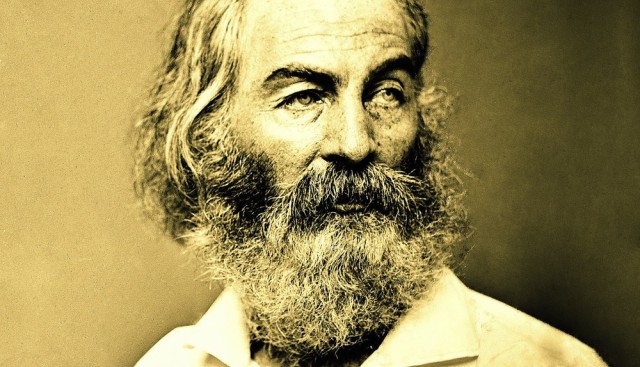Ed Simon, a PhD Candidate in the English department of Lehigh University writes, in an essay at the website Killing the Buddha, about the scriptural nature of Whitman’s lifelong work, Leaves of Grass. But not as a Christian scripture, but as a kind of post-God work of divine inspiration.
In the 79th year of these states Walt Whitman received a revelation, and he recorded it in a book of sacred scripture he entitled Leaves of Grass. That we think of it as primarily a book of verse is a mistake of history, an interpretive error, for it is first and foremost a new gospel, a type of revelation that came from within, and has the wisdom to know that voice is the same as that which all other prophets thought they heard from the kosmos. For there is no moment any more sacred than that which is now…
I would argue that Leaves of Grass is the first great work of scripture to be penned since modernity killed God. Copernicus and Newton, Nietzsche and Darwin signed the Lord’s death certificate, but our most American of sages, Whitman, arranged the funeral service. The brilliance and importance of Leaves of Grass is that it has the bravery to acknowledge the current state of theological affairs, and the pragmatism to fashion an ethic of living in spite of it.
Long an admirer of Whitman’s poetry, I could probably be convinced of it’s scriptural aspects, but I would disagree with Simon’s pronouncement of God’s death and so cannot follow fully where he leads. Nonetheless, it seems as though there has certainly been a shift since Whitman’s time in how we perceive of God and in the firmness in the foundations of faith. And this seems true across the Christian spectrum; all Christians today are negotiating and discerning the place and role of God in our lives and in our world. And Whitman’s work does seem to capture some essence of that unsettling tension while still celebrating the breathtaking magnificence that is life.

